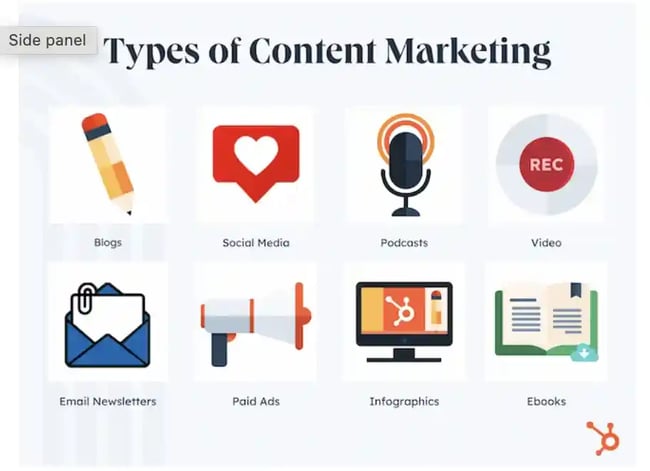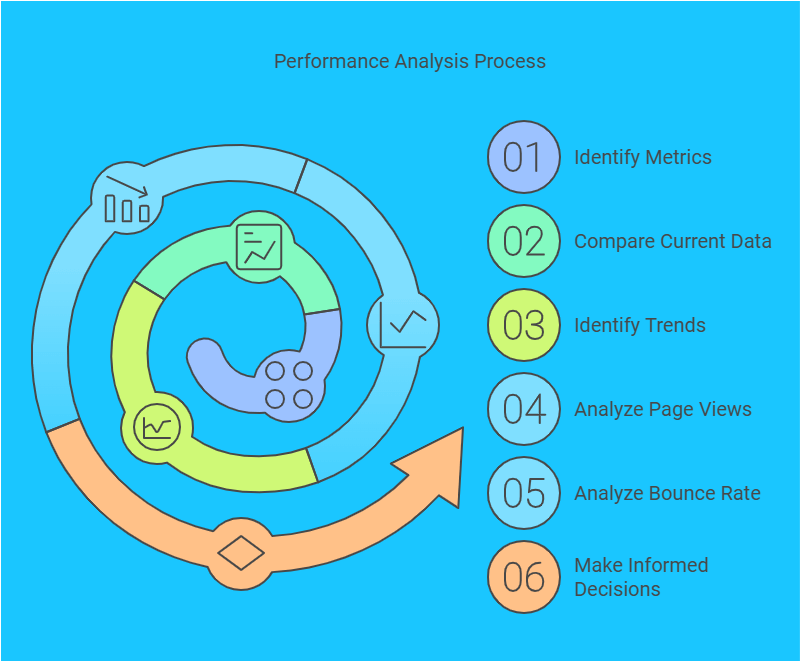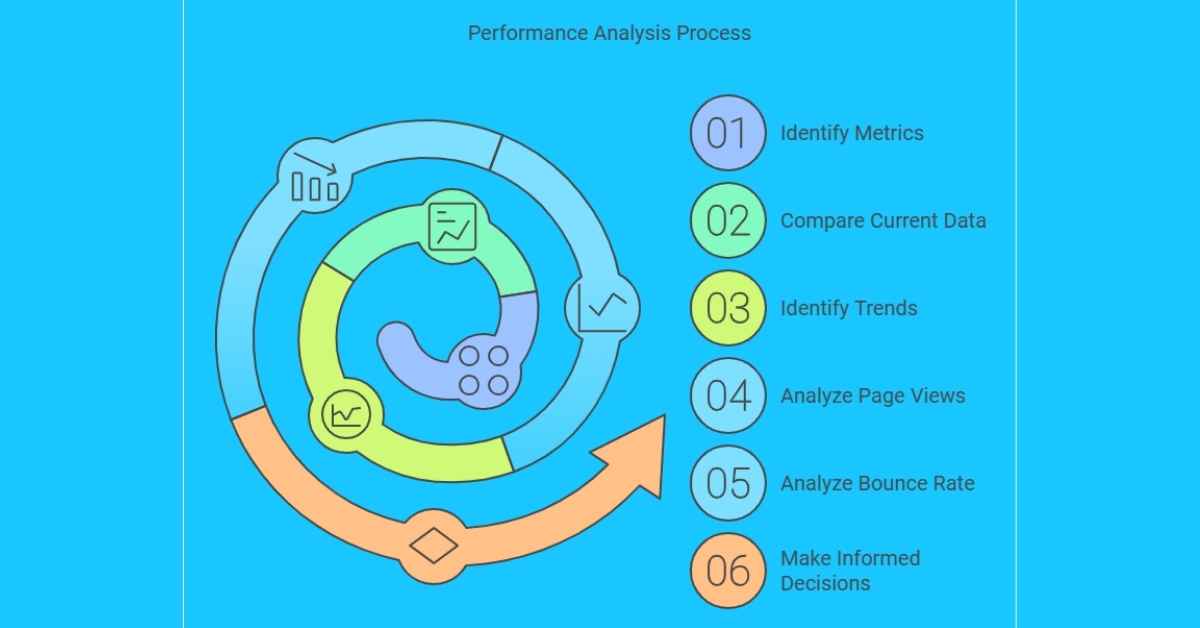Yes, blogs are a form of content marketing. They help businesses share valuable information, connect with audiences, and boost online presence.
In today’s digital world, engaging content is key. Blogs serve as a powerful tool for content marketing by providing useful information to readers. They help build trust, establish authority, and drive traffic to websites. Whether you’re a small business or a large corporation, blogging can enhance your marketing strategy.
It offers a platform to share insights, answer questions, and solve problems. This helps attract and retain customers. Effective blogs are informative, engaging, and tailored to your audience. In this post, we will explore how blogs fit into content marketing and why they are essential for your business growth.
Introduction To Blogs And Content Marketing
Welcome to the exciting world of blogs and content marketing! In this section, we will explore the relationship between blogs and content marketing. Both are powerful tools for businesses to connect with their audience. Let’s dive into the basics of blogs and content marketing.
Defining Blogs
A blog is an online journal or informational website. It displays information in reverse chronological order. New posts appear first. Blogs can cover various topics. They can be personal, professional, or business-oriented.
Blogs often feature written content, images, videos, and links. They provide valuable information or insights. Readers can comment and share posts. This creates a sense of community and engagement.
Here are some common elements of a blog:
- Regular updates
- Informal or conversational tone
- Reader engagement through comments
- Multimedia content
What Is Content Marketing?
Content marketing involves creating and sharing valuable content. The goal is to attract and retain a target audience. This content can take various forms, such as:
- Blog posts
- Videos
- Infographics
- Social media posts
Content marketing focuses on providing useful information. It builds trust and authority. It helps businesses establish a strong online presence.
Here are some key benefits of content marketing:
| Benefit | Description |
|---|---|
| Increased visibility | Content helps improve search engine rankings. |
| Audience engagement | Quality content attracts and keeps readers. |
| Brand authority | Valuable content establishes expertise and trust. |
By combining blogs and content marketing, businesses can reach their audience effectively. They can provide valuable insights and establish a loyal following.
Historical Context Of Blogging
Blogging has come a long way since its inception. Understanding its history helps us appreciate its role in content marketing. From personal journals to powerful marketing tools, blogs have evolved significantly.
Early Days Of Blogging
The early days of blogging started in the 1990s. These early blogs were often personal online journals. People shared their thoughts, experiences, and hobbies. The first blogs were simple. They focused on personal stories and daily life events.
Early bloggers used platforms like LiveJournal and Open Diary. These platforms allowed users to post and share their content easily. The concept of blogging quickly gained popularity. People enjoyed reading and writing these online journals.
Evolution Over Time
Blogging evolved over time. It moved from personal journals to professional content. Businesses saw the potential of blogs. They started using blogs to share news, tips, and insights. Blogging became a tool for content marketing.
New platforms emerged, like WordPress and Blogger. These platforms offered more features and customization. They made it easier for anyone to start a blog. The quality of content improved. Blogs became more informative and engaging.
Today, blogs are an essential part of digital marketing. Companies use blogs to drive traffic to their websites. They use them to engage with their audience and build brand authority. Blogging continues to evolve with new trends and technologies.
| Time Period | Key Developments |
|---|---|
| 1990s | Personal online journals |
| Early 2000s | Emergence of blogging platforms |
| 2010s | Blogging as a marketing tool |
| Present | Blogs as part of digital marketing strategy |
Role Of Blogs In Content Marketing
Blogs play a crucial role in content marketing. They help businesses connect with their audience. Through blogs, companies can share valuable information. This builds trust and strengthens the relationship with potential customers. Blogs are versatile and can cover various topics, making them a powerful tool in any content marketing strategy.
Driving Traffic
Blogs are excellent for driving traffic to your website. By regularly posting relevant and high-quality content, you attract visitors. These visitors may come from search engines, social media, or referrals. Each blog post is an opportunity to rank for different keywords, enhancing your site’s visibility.
Consider the following tips to boost traffic:
- Use SEO best practices to optimize your blog posts.
- Share your posts on various social media platforms.
- Engage with your audience through comments and feedback.
By following these steps, you can see a significant increase in website traffic.
Building Brand Authority
Blogs help in building brand authority. By providing valuable and insightful content, you position your business as an expert in your field. This builds trust and credibility with your audience. Here are some ways to establish authority through blogs:
- Write about industry trends and updates.
- Share case studies and success stories.
- Provide detailed guides and tutorials.
Being consistent with your blogging efforts is key. Regular updates show that your brand is active and knowledgeable.
| Benefit | Description |
|---|---|
| Increased Traffic | Regular blog posts attract more visitors to your site. |
| Brand Authority | High-quality content positions you as an industry expert. |
| Engagement | Blogs allow interaction through comments and shares. |

Credit: blog.hubspot.com
Benefits Of Blogging For Businesses
Blogs serve as an effective content marketing tool for businesses. They attract and engage potential customers. Regular updates boost search engine rankings, driving more traffic to the website.
Blogging offers many benefits for businesses. It builds brand awareness and attracts potential customers. Regular posts show your expertise. This helps to gain trust from your audience.
Improving SEO
Blogs improve SEO by adding fresh content to your site. Search engines like new content. This helps your site rank higher. Use keywords wisely. This can drive organic traffic. Link to other posts and pages. This improves your site’s authority.
Engaging With Audience
Blogs let you engage with your audience. Share useful tips and insights. Ask questions in your posts. Respond to comments. This creates a community. It shows that you value their opinions. Blogs make your brand more human. They build a loyal following.
“`
Challenges Of Using Blogs In Content Marketing
Blogs are a powerful tool in content marketing. Yet, using them brings some challenges. These challenges can affect the success of your content marketing strategy. Let’s explore some of these challenges.
Content Creation
Creating content for blogs is not always easy. It takes time and effort to write quality posts. You need to research your topics well. This ensures you provide valuable information to your readers. Finding new and engaging topics can also be difficult. The internet is full of information. So, standing out is a challenge.
Consistency Issues
Maintaining consistency is another challenge. Posting regularly is key to keeping your audience engaged. But, it can be hard to keep up with a posting schedule. Life can get busy. Sometimes, you may run out of ideas. Or, you may struggle to find the time to write. This can lead to gaps in your posting schedule. Gaps can cause your audience to lose interest. Consistency helps build trust with your readers.
Effective Blog Strategies
Effective blog strategies can significantly boost your content marketing efforts. By focusing on key elements, you can create engaging blogs that attract and retain readers. Below are essential strategies for crafting impactful blog posts.
Identifying Target Audience
Understanding who your readers are is vital. Use demographics and interests to create reader personas. This helps tailor content to their needs and preferences. Consider the following:
- Age
- Location
- Interests
- Challenges
With a clear target audience, you can address their specific questions and problems. This makes your blog more relevant and engaging.
Creating Valuable Content
Content is king. Ensure your blog provides useful information. This can include:
- Tips and tricks
- How-to guides
- Case studies
- Industry news
Use simple language and short sentences. Break up long paragraphs. This improves readability. Also, use headings and subheadings to organize content. Readers will find it easier to navigate.
Consistency is key. Publish regularly to keep your audience engaged. Create a content calendar to plan your posts. This helps maintain a steady flow of fresh content.
Incorporate visuals such as images and videos. They make your blog more appealing. Tables can also present data clearly:
| Content Type | Purpose |
|---|---|
| Tips and Tricks | Provide practical advice |
| How-To Guides | Step-by-step instructions |
| Case Studies | Show real-world examples |
| Industry News | Keep readers informed |
Finally, encourage engagement. Ask questions and invite comments. Respond to readers to build a community. This keeps your audience coming back for more.
Measuring Blog Success
Measuring the success of a blog is crucial for any content marketing strategy. It helps you understand what works and what doesn’t. By tracking key metrics and analyzing performance, you can refine your approach and achieve better results. Let’s dive into how you can measure blog success effectively.
Key Metrics To Track
Several key metrics can help you gauge your blog’s success. Page views tell you how many times your posts are read. Unique visitors show the number of different people visiting your blog. Bounce rate indicates how many people leave after viewing one page. A high bounce rate means your content may not be engaging. Time on page reveals how long visitors stay on your posts. Longer times suggest your content is captivating.
Analyzing Performance
Analyzing performance involves looking at these metrics over time. Compare current data with past performance. Look for trends and patterns. Are page views increasing? Is the bounce rate decreasing? Use this data to make informed decisions. If a post performs well, create more content like it. If a post underperforms, identify why. Improve or update it.

Future Of Blogs In Content Marketing
The future of blogs in content marketing is promising. Blogs remain a vital tool for businesses. They help connect with audiences and boost online presence. As digital landscapes change, blogs adapt to meet new demands. Let’s explore emerging trends and how blogs are adapting to changes in content marketing.
Emerging Trends
Interactive content is gaining popularity. Quizzes, polls, and interactive infographics engage readers. These elements make blogs more dynamic. Video content is also on the rise. Many blogs now include short videos to complement written content. This keeps the audience engaged and increases time spent on the page.
Voice search is changing the way blogs are written. People use voice assistants to search the web. Blogs now need to answer questions directly. This trend calls for clear and concise content. Optimizing for voice search improves a blog’s visibility.
Adapting To Changes
Personalization is key in modern content marketing. Blogs tailor content to individual preferences. This makes readers feel valued and understood. Personalization can be achieved through data analysis and targeted content.
Blogs are also adapting to mobile-first indexing. Mobile-friendly blogs rank higher on search engines. Ensuring a blog is responsive and fast-loading is crucial. A mobile-first approach improves user experience and boosts SEO.
Artificial Intelligence (AI) is playing a role too. AI tools help in content creation and distribution. They analyze data to improve blog performance. This makes content marketing more efficient and effective.
Frequently Asked Questions
What Is Content Marketing?
Content marketing is creating and sharing online material to attract and engage an audience.
Are Blogs Part Of Content Marketing?
Yes, blogs are a key part of content marketing. They help inform and attract readers.
Why Use Blogs In Content Marketing?
Blogs help educate your audience, drive traffic, and improve your website’s SEO.
How Do Blogs Improve Seo?
Blogs improve SEO by providing fresh content, using keywords, and gaining backlinks from other sites.
What Types Of Blogs Are Effective?
Informative, how-to, and list-based blogs are popular. They provide value and engage readers.
How Often Should You Blog?
Consistency is key. Aim to blog at least once a week for best results.
Can Blogs Generate Leads?
Yes, well-written blogs can attract potential customers and guide them towards your products or services.
Should Blogs Include Keywords?
Yes, using relevant keywords in your blogs helps improve search engine rankings and visibility.
How Long Should A Blog Post Be?
Aim for 500-1000 words. Longer posts can be more detailed and provide more value.
What Makes A Blog Engaging?
Quality content, clear writing, and relevant images make a blog engaging and more enjoyable to read.
Conclusion
Blogs are essential for content marketing. They engage readers and boost SEO. Regular updates keep your audience coming back. They also build trust and credibility. Blogs drive traffic to your website. They help convert visitors into customers. Crafting quality content is key.
Keep it informative and valuable. Blogging is a powerful tool. Use it effectively for better results.


